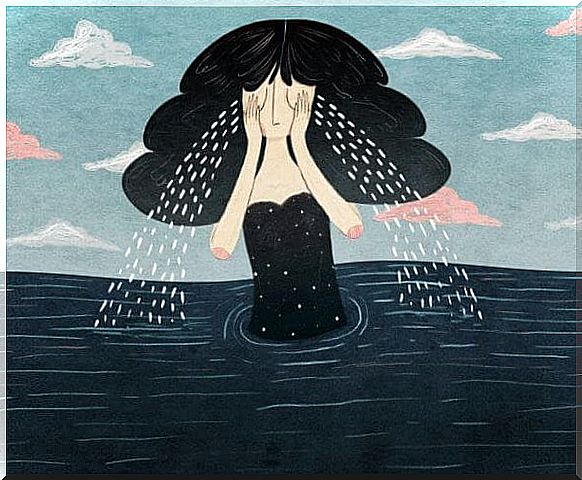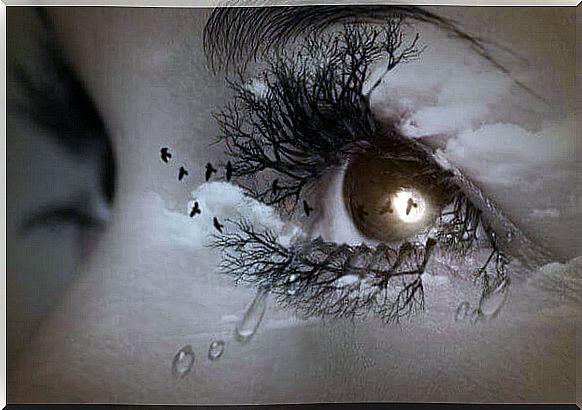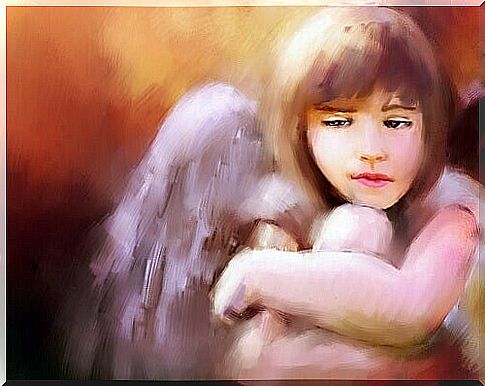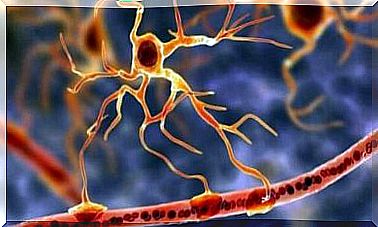11 Frequently Asked Questions To Deal With Grief

When someone we love dies, it causes us great sorrow and causes us to enter a state of apathy that we think we will never get out of. This is quite natural after experiencing a loss, and each person mourns in their own way. When someone leaves us, something inside us shatters. It is a difficult feeling to explain, and involves a number of thoughts and questions that we often do not have answers to. To deal with these feelings, and to be able to help ourselves, we must allow ourselves to explore and highlight the questions that plague us and fill our minds. We must let ourselves speak and express ourselves. Our reactions are many and varied – from crying and anxiety to sadness and fear – we all have different ways of dealing with grief.

It is important that we give ourselves time to react and find out things, as well as to allow those who love us to join us in all this. Silence, a look, a touch and having someone with us who is not in a hurry and does not feel uncomfortable – these gestures are more valuable than words in these situations.

11 questions and 11 answers after the death of someone we love
Although each person lives through the death of a loved one in a different way, there are some questions that are common during the period of grief. We can not ignore this reality, because they give us great anxiety and uncertainty in our emotions. Let’s look at some of the most common (Martínez González, 2010) :
Will I forget his voice, his laughter, his face?
When a close person dies, we try our best to keep them with us in everyday life. We feel that if we do not remember his laughter, his face and his way of walking, then it would be like a betrayal. But time fades the memory, and we begin to have doubts and worries that we may begin to forget the things that physically defined him.
As we consider this, we must remember that even though our loved one is not here and we cannot touch him or listen to him, he is very present in our heart. The love and the moments we have lived together remain in our heart and nothing, and no one can take it away from us, not even the time itself.
Dealing with grief: Am I going crazy?
The loss of a loved one causes shock, a mental blockage, which is extremely difficult and alienating. Experiencing so many emotions at the same time makes us feel that we have lost control of ourselves. We must point out that this is almost always a very necessary transitional phase in order to be able to process what has happened to us. It is like a defense mechanism that adjusts our great inner strength to produce the energy we need to stay afloat and move on with our lives.

3. How long does it last?
The answer to this question varies greatly, because this period depends on the circumstances, the personal characteristics, the relationship we had, the way the loss happened. But the first year is always very difficult, since everything reminds us of the deceased person as certain special dates come: the first Christmases, the first birthdays, the first holidays etc.
The despair of not being able to share the events, achievements and feelings with that person makes us relentlessly relive the tragedy. However, it is true that this period is not passive, because it helps us to accept death and slowly, but surely, live with it.
4. Will I ever be the same?
The answer to this question is no. The death of a loved one marks us and crushes us, and will inevitably change us. We lose parts of our lives, the parts that went intricately with that person. We mature in some aspects, we restore our value system, we emphasize different things, and we begin to think differently. All of this constitutes a learning curve that often makes us more connected to life than ever before.
5. Why has this happened to me? Why is he gone? Why now?
In a desperate attempt to try to understand what is incomprehensible and unfair, we inevitably ask ourselves such questions. They are intended to help us go over, analyze and understand reality in a rational way, because we feel the need to control and deal with the situation in order to combat anxiety.
The death of a loved one is always unwelcome and unwanted. In the absence of an answer, we will end up asking “what is this about?”, And this is a question that will help us to restructure our experience and our grief better.

Am I sick?
No. Pain and other emotions when we lose someone we love do not mean we are sick. It is a natural process that we must deal with. This does not mean that we should not pay special attention to these feelings; we should always meditate on them properly. We need an indefinite time to recover and restore our psychological balance, the part of us that allows us to deal with our emotions and thoughts.
7. Do I need psychological help?
Feeling bad during the mourning period is actually a healthy thing. First, the mourner must express himself, go over things and remember the absence all the time. Some people need a psychologist to set boundaries for the suffering the person is experiencing, as well as to be a person who listens to them and understands them unconditionally. Therapy offers this option, but without a doubt, not everyone needs therapy to help them along the way. This will therefore depend on each individual situation.
8. What should I do with their personal belongings?
There are usually two extremes about what to do with a loved one’s personal things. Some people get rid of everything with the thought that it will take away the pain from their memories, while others keep everything just as the deceased person left them. Each of these reactions shows that there has been no acceptance of the loss, and it is therefore advisable to help that person to assimilate the loss. There is no ideal way to do this, but we should avoid falling into extremes. The healthiest thing is to dispose of things or give them away a little later, when we feel strong enough to do so. But we should keep in mind that keeping the things that have more sentimental value will help us remember the person with greater love.
9. Does time heal all wounds?
Time does not cure everything, but it undoubtedly provides perspective. With the passage of time and with new experiences along the way, we move away from the painful event in one way or another. This brings us to the point where we have to choose between one attitude or another: we may have a defeatist attitude or we may have an attitude of overcoming. Time helps us to reconsider these things.

10. When is the grief over?
The grief ends when we begin to show interest in life again. When our energies are focused on relationships, on ourselves, on our work projects and on feeling better, we begin to renew our enthusiasm for life. It is when we can remember with love, and with nostalgia, that memories will not lead to constant pain anymore.
11. What can I do with everything I experience and feel?
After the whirlwind of emotions and experiences that have taken hold of us, we are faced with how useful this painful experience will be in our lives. Each of these events has an intimate meaning that we must work through, explore and interpret to rebuild our lives. It can help us write about it, listen to music that helps us process our emotions or perform a meaningful activity. This will help us to be grateful for the deceased person, and remember them with love. We want to be aware that they will never leave us because they will remain inside us as memories and lessons. We want to be their essence, an essence that will never disappear.
Main image of Mayra Arvizo









